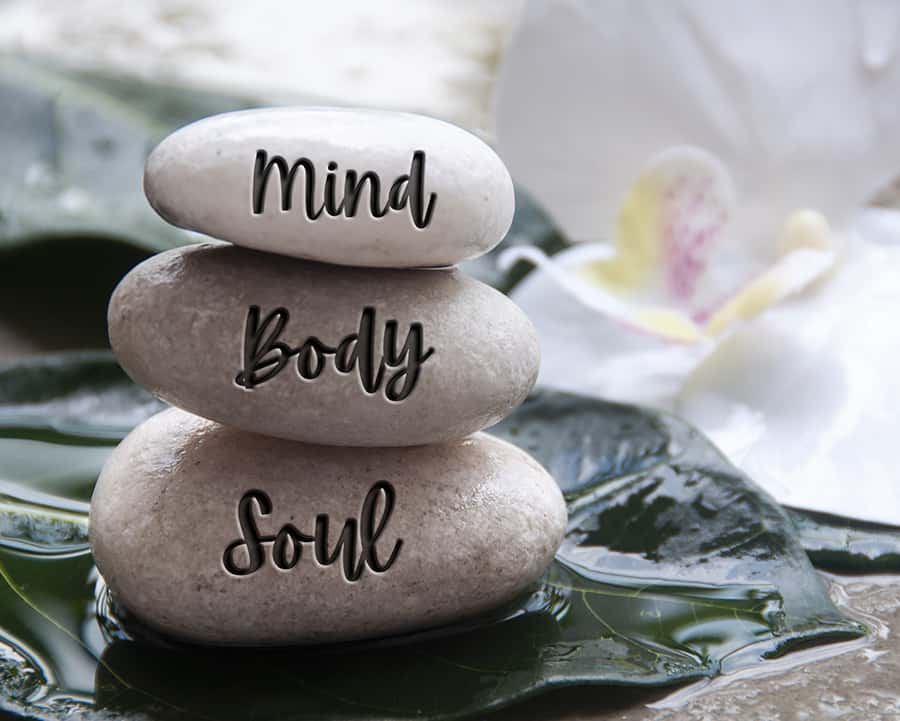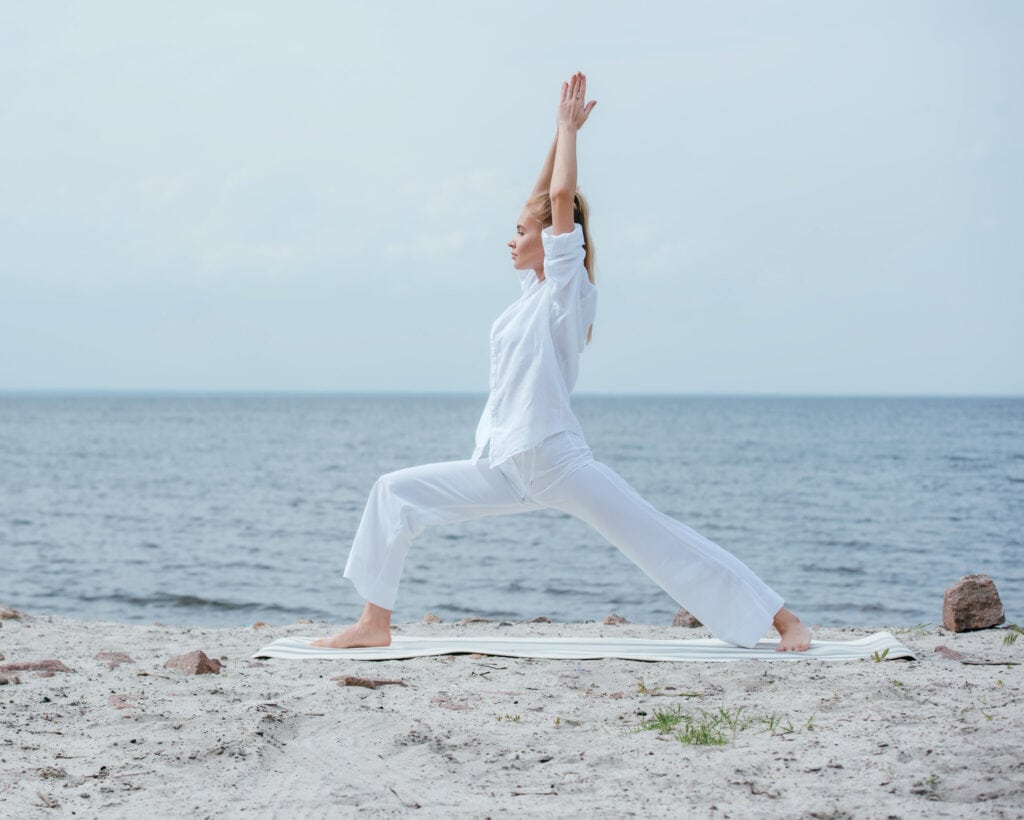
If so, osteopathy and its unique approach to holistic health and wellness and total mind and body health might be a great solution. Osteopathy is a complementary, holistic health therapy based on the unity between the body’s structure (bones, muscles, ligaments) and function – while also considering your mental, emotional, and spiritual health.
What Is Osteopathy?
And How Can It Help Improve your Health and wellness?
While traditional medicine has undeniable benefits, adding more holistic approaches to healthy living – like osteopathy, acupuncture, yoga, and meditation can provide a more comprehensive solution. These approaches focus on treating the whole person, including physical, emotional, and spiritual well-being. By integrating holistic approaches, studies show that it can positively impact your overall health and even prevent certain illnesses.
In summary, osteopathy is a holistic and gentle approach to healthcare that considers your entire body rather than just treating specific symptoms. It emphasizes your mind and body’s ability to heal itself. It promotes optimum health by facilitating the correct alignment of the musculoskeletal system, which includes bones, muscles, and joints. Patients seek osteopathy to relieve pain and discomfort, treat injuries, improve flexibility, and enhance their health and well-being.
We use various techniques, such as massage, stretching, and joint mobilization. But it’s the natural, non-invasive, and drug-free nature of osteopathy that makes it such a popular therapy for people looking for an alternative to traditional medical treatments. Ultimately, osteopathy can create a sense of balance and harmony – mind, body, and spirit – leading to a healthier and more fulfilling life.
How Osteopathy Promotes Holistic Health and Wellness
It’s no secret that our emotional state can impact our physical well-being. When we experience stress or anxiety, our bodies release stress hormones like cortisol and adrenaline, leading to inflammation and other negative health outcomes over time. Similarly, there is a link between chronic depression and a higher risk of heart disease and other serious medical conditions.
The connection between your body and your mind is complex. Still, it underscores the importance of prioritizing self-care and wellness. By caring for your mind, you can support your body and vice versa. Osteopathy as a treatment modality is a whole-body approach to wellness that focuses on the interrelatedness of our bodies’ systems.
Unlike traditional medicine, we consider the entire person when assessing health concerns and work to address imbalances that can manifest physically, emotionally, or mentally. This non-invasive practice is well-suited for those who crave a natural, comprehensive approach to wellness, as we encourage the body’s natural healing abilities and the mind-body connection.
Many people report relief from chronic pain and tension, improved mobility, and overall relaxation after visiting an osteopath. Our goal is to uncover and address the root cause of dysfunction in your musculoskeletal system using manual techniques, such as gentle pressure, stretching, and resistance. This focus can have a positive effect on conditions such as chronic back pain, migraines, and digestive issues. Unlike traditional medicine, our care focuses on the whole body rather than the symptomatic area.
If you’re preparing for an appointment, it’s important to take some time to gather your thoughts and questions beforehand. We need to know as much as possible about any discomfort or pain you’re experiencing. Consider your medical history and note any medications or supplements you’re taking, as this information can be helpful.
Osteopathy offers invaluable benefits because it’s a comprehensive approach to health that considers your physical, mental, emotional, and spiritual needs. We treat everyday aches and pains and provide support and complementary therapy during serious illness. When done routinely, osteopathic treatments can help maintain your overall health and wellness.
What Is The Connection Between Physical, Mental, And Emotional Health?
Thanks to emerging research on what ancient healers have known for centuries, it is increasingly clear that physical, mental, and emotional health are closely connected. We can no longer afford to ignore the fact that a healthy body affects how we think and feel about ourselves – just as our state of mind can influence our health and well-being. But how exactly does managing all three aspects promote a balanced and healthy lifestyle?
The human body is a complex and interconnected system, and understanding the physical-mental-emotional connection is essential to maintaining good health. Our thoughts and emotions can profoundly impact how our bodies function. Physical ailments can also affect our mental and emotional well-being. This interconnectedness means that we need to do more than resolve physical symptoms. Caring for your body and nurturing all aspects of yourself, including your mind and emotions, leads to more effective and lasting healing and can help cultivate a greater sense of well-being.
We all know the feeling of stress, whether from work, relationships, or just the general pressures of life. But did you know that holding onto that stress can have physical consequences? Chronic stress can cause various physical symptoms, from headaches and backaches to digestive issues and fatigue. When you hold onto stress for long periods, your body can get overwhelmed and start to break down.
Stress, depression and anxiety are common terms in our daily conversations. While there are several remedies for these issues, having a body that moves and functions well – without restriction is one of the most important factors in “feeling good”, and osteopathy is a great way to achieve this state. Combined with osteopathy, physical activity, regular movement, and mobility practices is another effective and natural solution.
Moving and breaking a sweat releases endorphins, which make you feel happy and positive. Exercise also strengthens your resilience to stress, reduces anxiety, and enhances your well-being. Regular physical activity is also vital to a holistic health approach. It aids in preventing cognitive decline as we age. Whether running, swimming, dancing, or simply walking, incorporating physical activity into our daily routine can significantly improve our mental health and lead to a happier, more fulfilling life.
When it comes to the physical toll tension can have on the body, often, we don’t think much about what is happening below the surface. It is a persisting muscle tension that occurs when muscles remain tight and contract for extended periods. The most common areas affected by chronic tension are the shoulders, neck, and back. This type of tension can be caused by years of poor posture, stress, or anxiety.
It can manifest in the body in various ways, such as headaches, aching muscles, or a stiff neck. Some people may also have difficulty falling asleep or staying asleep. Chronic tension, when you experience it over a long period, can wreak havoc on your body – physically and mentally from increased inflammation leading to chronic pain to complications with digestive health and heart health, all leading back to one common problem – stress and tension.
However, it is crucial to address chronic tension as it can sometimes lead to more serious issues like impaired mobility and loss of quality of life.
But how do you know when the pressure becomes too much to bear? Chronic tension can manifest in several different ways, both physical and emotional. Still, the key is learning to spot the warning signs before they become a bigger problem. Perhaps you’ve noticed that your shoulders feel constantly tight, or your jaw is frequently clenched. Maybe you find yourself snapping at loved ones or struggling to concentrate on tasks that you used to find easy. These are all potential indicators of chronic stress and tension.
Often, you may feel a persistent sense of unease, restlessness, and anxiety, which can interfere with your ability to enjoy life. This can be counterintuitive to a holistic health approach. Over time, it creates a vicious cycle that exacerbates your symptoms, making it harder to cope with stress and feel calm and relaxed. While some tension is normal, chronic tension deserves attention and effort to address it. With the right support, reducing symptoms and improving your psychological well-being is possible.
How To Manage Stress And Anxiety
As we’ve already mentioned, stress and anxiety are often implicated in physical pain and discomfort. So, to reduce the pain, you also need to reduce the stress and anxiety. In today’s fast-paced world, it’s no surprise that stress and anxiety have become common. But that doesn’t mean you have to endure it. There are many effective strategies for managing these overwhelming feelings.
One helpful approach holistic health is prioritizing self-care activities, such as getting enough sleep, eating a balanced diet, and engaging in relaxing hobbies. Mindfulness practices, like yoga, meditation, and deep breathing, can also reduce stress and anxiety. They have numerous benefits:
- These practices promote relaxation and reduce stress levels, essential for good mental health.
- They can help improve flexibility, balance, and physical fitness. Interestingly, research has also shown that yoga and meditation boost the immune system and reduce inflammation, making them valuable tools for preventing and managing various health conditions.
- These practices offer an opportunity to connect with oneself and the present moment, leading to increased mindfulness and a more positive outlook.
Holistic health approaches can vary quite a bit. Finding the right combination of techniques may take some trial and error, but prioritizing your mental and emotional health is always worth the effort. But whether you are looking to improve your physical health, reduce stress, or find a moment of peace, yoga and meditation are powerful tools that can help you achieve these goals.
Most of all, it’s important to recognize the signs and take control of stress before it evolves into a bigger problem. Regular osteopathy sessions, massage and movement, can all help to alleviate some of the negative consequences. With awareness, patience, practice, and proper support from a trained professional, you can find the balance your body needs.


